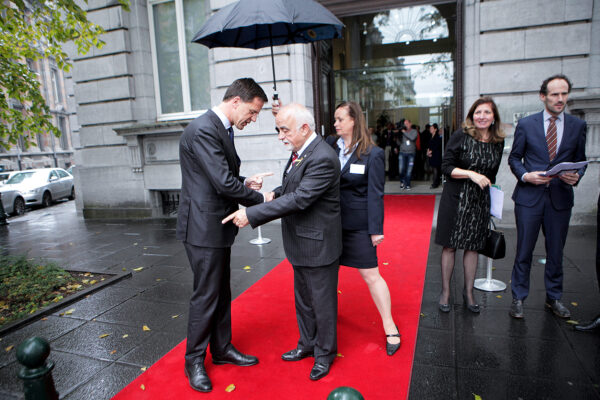
A week ago, it looked like the ruling parties in the Netherlands had managed to contain their losses in midterm elections.
Although three of the four parties that share power lost support, and the far right posted its best result to date, the government was not expected to become completely dependent on any one opposition party in the Senate.
Now it might after all.
Murky
Prime Minister Mark Rutte’s center-right coalition was projected to lose seven seats in the Senate, going down to 31. 38 are needed for a majority.
Prognosticators said either Labor, with seven seats, or the Greens, with eight, could give him a majority.
(So could Forum for Democracy, with ten projected seats, but that party is so far to the right that others are unlikely to make deals with it.)
Now that the full results are in, the picture looks murkier.
Horse-trading
Dutch voters did not actually elect the Senate last Wednesday. They elected provincial deputies (and, in the Caribbean Netherlands, special electors) who will elect the new Senate in May.
Those provincial deputies typically vote for their own party, but in some cases they might be persuaded to vote for an ally if they have votes left over.
Let’s say it takes ten deputies to win a seat in the Senate. In a given province, the Christian Democrats may have fourteen, Labor twelve and the Greens four. If all thirty deputies vote for their own party, the Christian Democrats would end up with two seats, Labor with one and the Greens with none. But if those four Green party deputies vote for Labor instead, or two of Labor’s deputies vote for the Greens, either left-wing party could win an additional seats at the Christian Democrats’ expense.
Political scientists estimate that as many as eight of the 75 seats in the Senate could change hands as a result of such horse-trading.
Kingmakers
The outcome could make all the difference for Rutte’s coalition.
The ruling parties are already in talks with Labor about pension reform. Employers and trade unions, who jointly manage half of the Dutch pension system, have failed to reach a consensus, leaving it up to the government to make changes. It wants to introduce more choice for workers, who are currently tied to whatever pension fund has been assigned to their industry. Labor is not opposed per se, but it is wary of further increases in the retirement age, especially for low-skilled workers.
The Greens support Rutte’s climate plan, which would see the Netherlands meet the goals of the Paris Agreement. But if they become kingmakers in the Senate, they might demand even more concessions, which could cause Rutte’s liberals to lose even more supporters to the far right.
